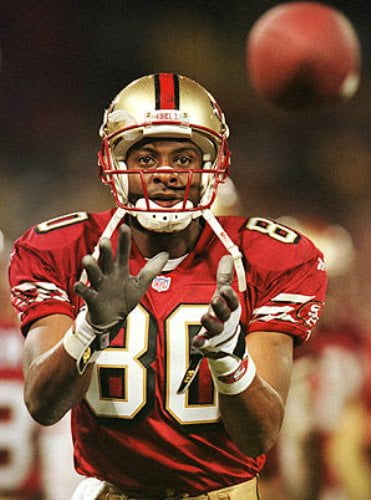In the competitive world of sports, athletes face immense pressure that can impact their mental health and overall performance. Recognizing the importance of mental well-being is crucial for optimizing not only physical capabilities but also emotional resilience. This article explores effective strategies for integrating mental health practices into training regimens, emphasizing the role of mindfulness, community support, and technology in fostering a healthier mindset. By adopting these approaches, athletes can enhance their focus, reduce anxiety, and achieve long-term success in their sport.
“`html
In this article you will find:
Integrating Mental Health Strategies into Training Regimens
In today’s competitive sports landscape, athletes are increasingly recognizing the importance of mental health as a cornerstone of their performance. Integrating mental health strategies into training regimens is essential for optimizing not just physical capabilities, but also emotional resilience and overall well-being. By prioritizing mental health, athletes can enhance their focus, reduce anxiety, and maintain motivation throughout their training and competition.
Understanding the Mind-Body Connection
The relationship between mental and physical health is profound. Athletes often experience high levels of stress, pressure, and expectations, which can lead to mental fatigue. Acknowledging this mind-body connection is crucial. When athletes integrate mental health practices into their physical training, they can:
- Improve Focus: Techniques such as visualization and positive affirmations help athletes maintain concentration during training and competition.
- Enhance Recovery: Mental health strategies can facilitate better recovery through relaxation techniques and mindfulness practices that lower cortisol levels.
- Boost Motivation: Setting mental health goals alongside physical performance goals can create a holistic approach to training.
Practical Strategies for Integration
To effectively integrate mental health strategies into training regimens, athletes can adopt several practical approaches:
- Mindfulness Training: Incorporating mindfulness exercises, such as meditation or deep-breathing techniques, can help athletes stay present and reduce performance anxiety.
- Regular Mental Health Check-Ins: Scheduling time for mental health assessments can help athletes identify stressors and develop coping strategies.
- Journaling: Maintaining a training journal that includes reflections on mental health can provide insights into patterns and triggers, allowing for proactive adjustments.
The Role of Coaches and Support Staff
Coaches and support staff play a vital role in fostering an environment that prioritizes mental health. They can:
- Encourage Open Communication: Creating a culture where athletes feel comfortable discussing mental health challenges can lead to better support and understanding.
- Provide Resources: Connecting athletes with mental health professionals or workshops can equip them with tools to manage stress and anxiety effectively.
- Model Healthy Behaviors: Coaches who prioritize their own mental health set an example for athletes, demonstrating the importance of a balanced approach to training.
By integrating these strategies into training regimens, athletes can create a more comprehensive approach to their performance. This not only enhances their athletic abilities but also fosters a healthier mindset that can lead to long-term success.
For further reading on the impact of sports on mental health, consider exploring the insights provided by Sporting Mind: The Interplay of Physical Activity and Psychological Well-Being.
The Role of Mindfulness and Meditation in Athletic Performance
As the competitive landscape of sports evolves, athletes are increasingly turning to mindfulness and meditation as essential tools for enhancing their performance. These practices not only support mental well-being but also contribute significantly to athletic success by improving focus, reducing stress, and fostering emotional resilience.
Understanding Mindfulness and Its Benefits
Mindfulness is the practice of being present and fully engaged in the moment, free from distractions or judgment. For athletes, this can mean tuning into their bodies, thoughts, and feelings during training and competition. The benefits of mindfulness in sports include:
- Enhanced Concentration: Mindfulness helps athletes maintain focus, allowing them to perform under pressure without succumbing to distractions.
- Stress Reduction: Regular mindfulness practice can lower cortisol levels, reducing anxiety and promoting a calm state of mind.
- Improved Emotional Regulation: Mindfulness enables athletes to manage their emotions better, leading to more consistent performances.
The Power of Meditation in Sports
Meditation, often intertwined with mindfulness, involves techniques that promote relaxation and mental clarity. Athletes can harness meditation to enhance their performance through various methods:
- Visualization Techniques: Athletes can visualize successful outcomes, which primes their minds for actual performance and builds confidence.
- Breath Control: Focusing on breath during meditation helps athletes regulate their physiological responses to stress, promoting a sense of calm and readiness.
- Body Scanning: This technique involves mentally scanning the body for tension and releasing it, which can enhance physical performance by improving body awareness.
Implementing Mindfulness and Meditation in Training
Incorporating mindfulness and meditation into training regimens can be straightforward. Here are some effective strategies:
- Daily Mindfulness Practice: Athletes can set aside time each day for mindfulness exercises, such as mindful walking or eating, to enhance their awareness and presence.
- Guided Meditation Sessions: Utilizing apps or online resources for guided meditations tailored for athletes can provide structure and support in developing these practices.
- Mindful Warm-Ups: Incorporating mindfulness into warm-up routines—focusing on breath and body sensations—can set a positive tone for training or competition.
Real-World Applications and Success Stories
Numerous athletes and teams have successfully integrated mindfulness and meditation into their training. For instance, the NBA has seen players like LeBron James and Stephen Curry openly advocate for mindfulness practices, crediting them for their enhanced performance and mental clarity. Similarly, the U.S. Olympic Team has incorporated mental conditioning coaches to help athletes use these techniques effectively.
Research supports these trends, showing that athletes who engage in mindfulness and meditation often experience improved performance metrics and lower levels of anxiety. A study published in the National Institutes of Health journal highlights the positive effects of mindfulness on emotional regulation and resilience in athletes, underscoring the growing recognition of these practices in sports.
As the understanding of mental health in athletics continues to evolve, the role of mindfulness and meditation is becoming increasingly critical. By embracing these practices, athletes can not only elevate their performance but also cultivate a deeper connection with their mental well-being.
Building a Supportive Community for Mental Wellness in Sports
In the high-pressure world of sports, the importance of a supportive community cannot be overstated. Athletes often face unique challenges that can impact their mental health, making it essential to cultivate an environment where they feel safe, understood, and valued. Building a supportive community for mental wellness in sports involves collaboration among coaches, teammates, families, and mental health professionals, all working together to create a culture of openness and support.
The Importance of Community in Athletic Performance
A strong community can significantly enhance an athlete’s performance and overall well-being. Here are some key reasons why community support is vital:
- Emotional Safety: A supportive environment allows athletes to express their feelings without fear of judgment, fostering emotional safety that is crucial for mental wellness.
- Shared Experiences: Connecting with others who understand the pressures of competition can help athletes feel less isolated and more empowered.
- Encouragement and Motivation: A community that celebrates successes and provides encouragement during setbacks can boost an athlete’s morale and resilience.
Strategies for Creating a Supportive Community
Building a supportive community for mental wellness in sports requires intentional actions from all involved. Here are effective strategies to foster such an environment:
- Open Communication: Encourage open dialogue about mental health among athletes, coaches, and support staff. Regular team meetings can provide a platform for discussing challenges and sharing coping strategies.
- Peer Support Programs: Establish peer mentoring or buddy systems where athletes can support each other, share experiences, and build trust.
- Workshops and Training: Organize workshops focused on mental health awareness, stress management, and resilience training, led by mental health professionals.
The Role of Coaches and Support Staff
Coaches and support staff play a pivotal role in shaping the community’s culture. Their approach can either promote or hinder mental wellness among athletes. Here are ways they can contribute:
- Lead by Example: Coaches should model healthy behaviors and attitudes towards mental health, demonstrating the importance of seeking help and prioritizing well-being.
- Recognize Signs of Distress: Training staff to recognize signs of mental health issues can lead to early intervention, providing athletes with the support they need.
- Foster Inclusivity: Creating an inclusive atmosphere that values diversity can enhance team cohesion and support mental wellness.
Engaging Families and External Support Systems
Involving families and external support systems in the conversation about mental wellness is crucial. Here’s how to engage them effectively:
- Family Workshops: Hosting workshops for families can educate them on the mental health challenges athletes face and how they can provide support.
- Open House Events: Organizing open house events where families can meet coaches and support staff fosters transparency and builds trust.
- Encourage External Support: Promote the importance of seeking professional help when needed, encouraging athletes to utilize mental health resources outside their sport.
Creating a supportive community for mental wellness in sports is not just beneficial; it is essential for the holistic development of athletes. By fostering open communication, engaging families, and prioritizing mental health education, sports organizations can create environments where athletes thrive both mentally and physically.
For more insights on the interplay of sports and mental health, consider reading Sporting Mind: The Interplay of Physical Activity and Psychological Well-Being, which delves deeper into the benefits of a supportive atmosphere in athletics.
Utilizing Technology to Enhance Mental Health for Athletes
In an era where technology permeates every aspect of our lives, athletes are increasingly leveraging digital tools to enhance their mental health and overall performance. From mobile applications to wearable devices, technology provides innovative solutions that can help athletes manage stress, improve focus, and maintain emotional well-being. Here, we explore how technology can be effectively utilized to support mental health in sports.
The Rise of Mental Health Apps
Mobile applications dedicated to mental health have gained popularity among athletes seeking to improve their mental resilience. These apps offer a variety of features designed to support mental wellness:
- Meditation and Mindfulness: Apps like Headspace and Calm provide guided meditations, breathing exercises, and mindfulness techniques tailored for athletes, helping them to reduce anxiety and enhance focus.
- Journaling Tools: Digital journaling apps such as Day One allow athletes to document their thoughts, feelings, and experiences, promoting self-reflection and emotional processing.
- Progress Tracking: Many apps offer features to track mood, stress levels, and mental health progress, enabling athletes to identify patterns and triggers over time.
Wearable Technology for Mental Well-Being
Wearable devices, such as smartwatches and fitness trackers, are not just for monitoring physical activity; they can also play a significant role in supporting mental health:
- Heart Rate Variability Monitoring: Devices that track heart rate variability (HRV) can provide insights into an athlete’s stress levels and recovery status, helping them make informed decisions about training intensity.
- Sleep Tracking: Quality sleep is crucial for mental health. Wearables that monitor sleep patterns can help athletes identify factors affecting their rest and recovery, allowing them to implement better sleep hygiene practices.
- Biofeedback Techniques: Some wearables offer biofeedback features that teach athletes to control physiological responses, such as heart rate and breathing, promoting relaxation and focus.
Online Support Communities and Teletherapy
Technology has also revolutionized the way athletes access mental health support through online communities and teletherapy:
- Virtual Support Groups: Online platforms allow athletes to connect with peers facing similar challenges, fostering a sense of community and shared understanding.
- Teletherapy Services: Athletes can access licensed mental health professionals through teletherapy platforms like BetterHelp or Talkspace, providing convenient and confidential support.
- Webinars and Workshops: Many organizations offer online educational resources, webinars, and workshops focused on mental health topics relevant to athletes, enhancing their understanding and coping strategies.
Data-Driven Insights for Mental Health
The integration of data analytics in sports technology is paving the way for personalized mental health strategies. Coaches and sports psychologists can analyze data collected from various sources to:
- Identify Trends: By examining performance data alongside mental health metrics, professionals can identify correlations between mental state and athletic performance.
- Customize Interventions: Data-driven insights allow for tailored mental health interventions that address the specific needs of athletes, enhancing their effectiveness.
- Monitor Progress: Continuous monitoring of mental health indicators helps track the effectiveness of implemented strategies, ensuring that athletes receive the necessary support.
As technology continues to evolve, its potential to enhance mental health for athletes is limitless. By embracing these innovative tools, athletes can cultivate a proactive approach to their mental well-being, ultimately leading to improved performance and a healthier mindset.
For further insights into the intersection of technology and mental health in sports, consider exploring resources from the National Institutes of Health, which provides valuable research on the psychological aspects of athletic performance. Athletes today are increasingly recognizing the critical role of mental health in enhancing performance. Integrating mental health strategies into training regimens can improve focus, enhance recovery, and boost motivation. Practical approaches include mindfulness training, regular mental health check-ins, and journaling. Coaches and support staff are essential in fostering a supportive environment by encouraging open communication, providing resources, and modeling healthy behaviors.
Additionally, technology offers innovative solutions for mental wellness, such as mental health apps for meditation and journaling, wearable devices for tracking stress and sleep, and online support communities for peer connection. By leveraging these tools and creating a culture of support, athletes can proactively manage their mental health, leading to improved performance and overall well-being.




